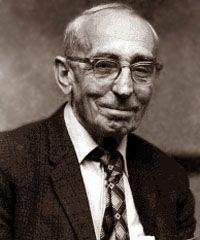Пользователь - o 3b3e7475144cf77c
На сайте mybooks.club вы можете бесплатно читать книги онлайн без регистрации, включая Пользователь - o 3b3e7475144cf77c. Жанр: Прочее издательство неизвестно,. Доступна полная версия книги с кратким содержанием для предварительного ознакомления, аннотацией (предисловием), рецензиями от других читателей и их экспертным мнением.
Кроме того, на сайте mybooks.club вы найдете множество новинок, которые стоит прочитать.

Пользователь - o 3b3e7475144cf77c краткое содержание
o 3b3e7475144cf77c читать онлайн бесплатно
was a few more additions— that is to say, accounts for food and wine consumed by parties in
restaurants.
IV
The Pomeroy-Nielsons had gone to London, where Rick was engaging a stage director and a
business manager. The Budds and the Robins went for a visit to Les Forêts, where Emily
Chattersworth had just arrived. Hansi and Bess played for her; and later, while Bess and Lanny
practiced piano duets, Irma sought out the hostess to ask her advice about the problems of a
Pink husband and a Red uncle-in-law.
Mrs. Chattersworth had always been open-minded in the matter of politics; she had allowed
her friends and guests to believe and say what they chose, and as a salonnière had been
content to steer the conversation away from quarrels. Now, she said, the world appeared to be
changing; ever since the war it had been becoming more difficult for gentlemen—yes, and ladies,
too—to keep their political discussions within the limits of courtesy. It seemed to have begun
with the Russian Revolution, which had been such an impolite affair. "You have to be either for
it or against it," remarked Emily; "and whichever you are, you cannot tolerate anyone's being on
the other side."
Said Irma: "The trouble with Lanny is that he's willing to tolerate anybody, and so he's
continually being imposed upon."
"I watched him as a little boy," replied her friend. "It seemed very sweet, his curiosity about
people and his efforts to understand them. But like any virtue, it can be carried to extremes."
Lanny's ears would have burned if he could have heard those two women taking him to pieces
and trying to put him together according to their preferences. The wise and kind Emily, who
had been responsible for his marriage, wanted to make it and keep it a success, and she invited
the young people to stay for a while so that she might probe into the problem. Caution and tact
were necessary, she pointed out to the young wife, for men are headstrong creatures and do not
take kindly to being manipulated and maneuvered. Lanny's toleration for Reds and Pinks was
rooted in his sympathy for suffering, and Irma would love him less if that were taken out of his
disposition.
"I don't mind his giving money away," said Irma. "If only he didn't have to meet such
dreadful people—and so many of them!"
"He's interested in ideas; and apparently they come nowadays from the lower strata. You and
I mayn't like it, but it's a fact that they are crashing the gates. Perhaps it's wiser to let in a few
at a time."
Irma was willing to take any amount of trouble to understand her husband and to keep him
entertained; she was trying to acquire ideas, but she wanted them to be safe, having to do with
music and art and books and plays, and not politics and the overthrowing of the capitalist
system. "What he calls the capitalist system," was the way she phrased it, as if it were a tactical
error to admit that such a thing existed. "I've made sure that he'll never be interested in my
friends in New York," she explained. "But he seems to be impressed by the kind of people he meets
at your affairs, and if you'll show me how, I'll do what I can to cultivate them—before it's too late. I
mean, if he goes much further with his Socialists and Communists, the right sort of people
won't want to have anything to do with him." "I doubt if that will happen," said Emily, smiling.
"They'll tolerate him on your account. Also, they make allowances for Americans— we're
supposed to be an eccentric people, and the French find us entertaining, much as Lanny finds
his Reds and Pinks."
V
The husband wasn't told of this conversation, or others of the kind which followed; but he
became aware, not for the first time in his life, of female arms placed about him, exerting a
gentle pressure in one direction and away from another. Not female elbows poked into his ribs,
but soft, entwining arms; a feeling of warmth, and perhaps a contact of lips, or whispered words
of cajolement: darling, and dear, and intimate pet names which would look silly in print and
sound so from any but a chosen person. Never: "Let's not go there, dear," but instead: "Let's
go here, dear." And always the "here" had to do with music or pictures, books or plays, and
not with the overthrow of the so-called, alleged, or hypothetical capitalist system.
Under Emily's guidance Irma decided that she had made a mistake in discouraging Lanny's
efforts as an art expert. To be sure, it seemed silly to try to make more money when she had so
much, but the prejudices of men had to be respected; they just don't like to take money from
women, and they make it a matter of prestige to earn at least their pocket-money. Irma
decided that Zoltan Kertezsi was an excellent influence in her husband's life. So far she had looked
upon him as a kind of higher servant, but now decided to cultivate him as a friend.
"Let's stay in Paris a while, dear," she proposed. "I really want to understand about pictures,
and it's such a pleasure to have Zoltan's advice."
Lanny, of course, was touched by this act of submission. They went to exhibitions, of which
there appeared to be no end in Paris.
Also, there were private homes having collections, and Zoltan possessed the magic keys that
opened doors to him and his guests. Pretty soon Irma discovered that she could enjoy looking
at beautiful creations. She paid attention and tried to understand the points which Zoltan
explained: the curves of mountains or the shape of trees which made a balanced design in a
landscape; the contrasting colors of an interior; the way figures had been placed and lines
arranged so as to lead the eye to one central feature. Yes, it was interesting, and if this was what
Lanny liked, his wife would like it, too. Marriage was a lottery, she had heard, and you had to
make the best of what you had drawn.
VI
"Zaharoff's house on the Avenue Hoche contains some gay and bright Bouchers," remarked
Lanny. "He's not apt to be there, but the servants know me, so no doubt we can get in."
The three of them called at the white-stone mansion with the glass-covered window-boxes full of
flowers. The tottery old butler was still on duty, and the beautiful portraits still hung in the
drawing-room where Sir Basil had burned his private papers and set fire to his chimney. The
butler reported that his master was at the chateau and seldom came to town now; but no one
knew when he might come, and he continued the custom which had prevailed ever since Lanny
had known him, of having a full-course dinner prepared every evening, enough for himself and
several guests. If after a certain hour he had not arrived, the servants ate what they wanted and
gave the rest to worthy poor. The duquesa's bybloemen and bizarres still bloomed in her garden,
fifteen springtimes after she had shown them to Lanny. "They have their own kind of
immortality," she had said; and these words had been repeated to him by an old Polish woman
in a Mother Hubbard wrapper, then living in a tenement room on Sixth Avenue, New York,
with the elevated railroad trains roaring past the windows.
There were old masters worth seeing at Balincourt, and Lanny telephoned and made an
appointment to bring his wife and his friend. He motored them out on a day of delightful
sunshine, and the Knight Commander and Grand Officer received the party with every
evidence of cordiality. He had discovered that Lanny's wife was kind, and any lonely old man
appreciates the attentions of a beautiful young woman. He showed them his David and his
Fragonard, his Goya, his Ingres, and his Corots. These also had their kind of immortality, a
magical power to awaken life in the souls of those who looked at them. Zaharoff had told Lanny
that he was tired of them, but now it appeared that the fires of the young people's appreciation
warmed up the dead ashes of his own.
The Hungarian expert never failed to have something worth while to say about a painting,
and Zaharoff didn't fail to recognize that what he said was right; they talked about prices,
which were of interest to them both, and important to Zoltan—one never knew what might
come of such a contact. Lanny said: "This is the man who has taught me most of what I know
about art." Zoltan, flushing with pleasure, replied: "This from the stepson of Marcel Detaze!"
They talked about that painter, of whom Zaharoff had heard. He asked questions, and in his
mind the seed of an idea fell and began to germinate. Perhaps this was a way to get more of
Madame Zyszynski's time! Buy a Detaze!
Tea was served on the terrace in front of the chateau. A beautiful view of formal gardens and
distant forest, and when Lanny commented on it, Zaharoff said: "My wife chose this place and
I bought it from King Leopold of Belgium."
He didn't go any further, but Lanny knew the story, and on the drive back to Paris entertained
his passengers with the scabrous details. The King of the Belgians, a tall, magnificent personage
wearing a great square-cut white beard, had been wont to roam the highways and byways of
Paris in search of likely pieces of female flesh. The sixty-five-year-old monarch had chanced upon
the sixteen-year-old sister of one of the famous demi-mondaines of the city and had sent a
procuress to buy her; he had taken her to live in Hungary for a while, had fallen madly in love
with her and brought her back to Paris, and purchased this splendid chateau for her home. He
hadn't been content with it, but had insisted upon remodeling a great part, tearing out the
ceiling of his lady's bedroom and making it two stories tall, like a church. The four windows
facing the bed had draperies which had cost twenty thousand francs; the coverlet of English
point lace had cost a hundred and ten thousand—the pre-war kind of francs! Her bathroom was of
massive porphyry and her tub of silver; in the basement was a swimming-pool of gold mosaic.
Lanny, who had never had a bath here, wondered if the very proper Duquesa Marqueni had
retained these Byzantine splendors.
VII
Another of the homes which the trio visited was the town house of the Duс de Belleaumont, a
member of the old French nobility who had married a cattle-king's daughter from the
Argentine and so was able to live in the state of his forefathers. The palace stood on a corner near
the Parc Monceau, and had an impressive white marble exterior and about thirty rooms, many of
them spacious. It was decorated with that splendor which the French have cultivated through
centuries. Every piece of furniture, every tapestry and statue and vase was worthy of separate
study. A crystal cross set with sixteenth-century gold-enamel reliquaries, an inlaid Louis Seize
writing cabinet, a set of translucent azure ginger jars from ancient China—such things moved
Zoltan Kertezsi to raptures. The total effect was somewhat like a museum, but this does not trouble
anyone in France, and has been known to occur on Long Island, too.
The family was away, and the furniture was under dust-covers, but Zoltan knew the caretaker,
who, being sure of a generous tip, exhibited anything in which they expressed interest. The idea
occurred to Irma that the depression might have affected the market for Argentine beef, and
she inquired whether the place could be rented; the reply was that Madame should consult
the agent of M. le Duc. Irma did so, and learned that a properly accredited family might lease
the residence for the sum of a million francs per year.
"Why, Lanny, that's nothing!" exclaimed Irma. "Less than forty thousand dollars."
"But what on earth would you do with it?"
"Wouldn't you like to live in Paris and be able to entertain your friends?"
"But you've got one white elephant on your hands already!"
"Be sensible, darling, and face the facts. You don't like Shore Acres, or the people who come
to it. You want to live in France."
"But I've never asked for a palace!"
"You want your friends about you, and you want to do things for them. All your life you've
taken it for granted that somebody will do the entertaining, and you enjoy the benefits. You're
delighted to go to Sept Chenes and meet intellectual and cultivated people. You hear famous
musicians, you hear poets read their work —and apparently you think that kind of pleasure grows
on trees, you don't even have to pick the fruit, it comes already cut up in little cubes and served
on ice! Hasn't it occurred to you that Emily's health is failing? And some day you won't have
your mother, or Sophie, or Margy—you'll be dependent on what your wife has learned."
He saw that she had thought it all out, and he guessed that she had consulted the other
ladies. Naturally, they would approve, because it would provide good fun for them. "You'll be
taking a heavy load on your shoulders," he objected, feebly.
"It won't be so easy in a foreign country; but I'll get help, and I'll learn. It will be my job, just
as it has been Emily's."
"What will you do with Shore Acres?"
"Let's try this place for a year. If we like it, perhaps we can buy it, and sell Shore Acres; or if
mother wants to go on living there, she can cut down on the staff. If this depression goes on,
they'll be glad to work for their keep, and that'll be fair."
"But suppose your income goes on dropping, Irma!"
"If the world comes to an end, how can anybody say what he'll do! Anyhow, it can't do us any
harm to have a lot of friends."
VIII
It was a compromise she was proposing; she would live in France, as he desired, but she
would live according to her standards. In order to stop her, he would have to say a flat no, and
he didn't have the right to say that. It was her money, and all the world knew it.
There was nothing very novel to Lanny Budd in the idea of living in Paris. He had spent a
winter here during the Peace Conference, and another during the period of his vie a trois with
Marie de Bruyne. Paris offered every kind of art and entertainment, and it was centrally
situated; roads and cars had been so improved that you could reach London or Geneva or
Похожие книги на "o 3b3e7475144cf77c", Пользователь
Пользователь читать все книги автора по порядку
Пользователь - все книги автора в одном месте читать по порядку полные версии на сайте онлайн библиотеки mybooks.club.




